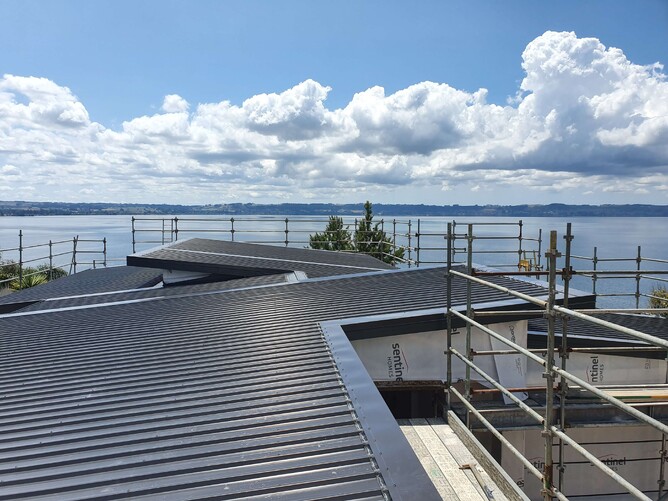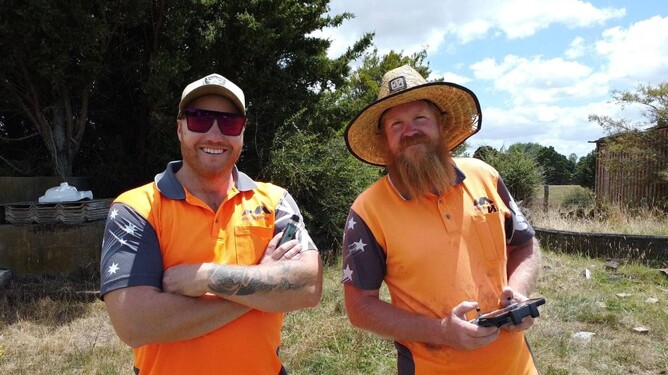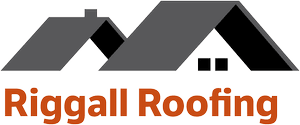When you're investing in a new roof, one of the biggest protections you have is your warranty. But not all warranties are created equal. Some cover materials only. Others may not apply unless installation meets specific guidelines. As a homeowner in Hamilton or the Waikato, it's important to understand your roofing warranty so you know exactly what's covered—and what could void it.
Let’s break down the essentials of roofing warranties in New Zealand.
1. Material vs Workmanship Warranties
Material warranties
Are provided by manufacturers like Steel & Tube or Dimond Roofing, covering defects in the roofing product itself—such as steel sheets, coatings, and fasteners.
Workmanship warranties
Come from your installer (like Riggall Roofing) and cover issues related to how the roof was installed.
Tip: Always confirm you are getting both types of warranties, and that they align with NZ roofing standards.
2. Common Lengths of Coverage
Colorsteel® products are designed to stand up to New Zealand’s harsh and varied climates, and different products offer different levels of protection:
Colorsteel MAXAM®
Ideal for most residential applications across Hamilton and inland Waikato. Offers a warranty of up to 50 years, depending on environment and care.
Colorsteel ALTIMATE®
Specifically engineered for very high to severe coastal environments—including areas exposed to salt-laden winds. Warranty starts from 25 years for buildings on the coastline.
Workmanship (installation)
Typically 5–10 years, depending on the contractor.
3. What’s Usually Covered?
Both workmanship and material warranties are intended to cover defects and failures that occur under normal conditions.
Typical coverage includes:
Corrosion-through of the metal substrate (not just surface rust)
Peeling, blistering, or flaking of coatings
Significant colour fade within the manufacturer’s limits
Leaks caused by defective materials or poor installation (depending on warranty type)
Failure of fixings or fastenings when installed as specified
This means if your roof begins to deteriorate prematurely due to faulty materials or installation—you're protected.
4. What’s Not Covered?
Even the best warranties have limitations. Understanding what’s not covered helps prevent surprises if an issue arises.
Exclusions often include:
Damage caused by physical impact (e.g. falling branches, tools, or people walking on the roof incorrectly)
Improper maintenance, such as clogged gutters, unwashed roof sections, or exposure to contaminants
Use of incompatible fixings, fasteners, or sealants
Third-party installation errors if someone not certified by the manufacturer installs or alters your roof
Natural disasters like earthquakes, severe storms, or fire (these are typically insurance matters)
Always read the fine print. Knowing your responsibilities as the homeowner is just as important as knowing what the manufacturer or roofer is responsible for.
5. How to Keep Your Warranty Valid
Roofing warranties are conditional, meaning they require you to do certain things to remain eligible for coverage. These usually include:
Washing your roof regularly
Annually, or every 6 months in areas near the coast or under trees.
Using approved accessories and fixings
Ensure they match the roofing system.
Following care and maintenance guides
Follow the guides supplied by your roofer or the manufacturer.
Having the roof installed by a licensed and approved installer
Get in touch with Riggall Roofing for a free quote.
For example, if you skip routine cleaning and your roof corrodes due to accumulated debris, your warranty claim may be denied—even if the material itself is fine.
6. What to Ask Your Roofer
Before committing to a roofing contractor, you should ask the following:
“What kind of warranties do you offer—both materials and workmanship?”
“Are you a licensed installer for this roofing brand?”
“Can I see the manufacturer’s maintenance guide and warranty terms in writing?”
“Are there any specific conditions I need to follow to keep the warranty valid?”
A professional Hamilton roofing company like Riggall Roofing should provide all of this proactively. If they don’t—ask why.
7. Keep Documentation
One of the biggest mistakes homeowners make is not storing proper documentation after a roofing project is complete. If you need to make a claim in 5, 10, or even 20 years, the burden of proof will often fall on you.
Make sure to keep:
Warranty registration certificates (often online or via PDF)
Product batch numbers and colour names
Photos of the completed install
Receipts and contracts from your roofer
Any maintenance logs (e.g. dates of professional cleaning)
If you ever need to file a claim, having this on hand makes the process much smoother.
8. Local Conditions Matter — Waikato-Specific Risks
The Waikato climate is unique. Inland areas like Hamilton experience high humidity, rainfall, and UV exposure, while some parts closer to the coast face salt-laden air. These conditions affect how roofing materials perform—and which warranties apply.
Choosing a Colorsteel product appropriate to your environment ensures the warranty terms stay valid. For example, Colorsteel ALTIMATE® is ideal for areas near Raglan or Huntly, whereas MAXAM® may be more suited to central Hamilton.
Your roofing professional should help assess your local conditions and recommend the best system.
9. What Happens if There’s a Problem?
If you notice a defect—such as peeling paint, rusting, or leaks—the first step is to contact your roofing contractor. They’ll inspect the issue and determine whether it falls under workmanship or material warranty.
If it’s a material issue, they’ll liaise with the manufacturer (such as Colorsteel) to lodge the warranty claim. Most manufacturers will send an assessor if needed. If approved, repairs or replacements are typically free of charge.
Important: Never attempt to repair roofing yourself during a warranty period, as this can void your coverage.
10. Why Choose Riggall Roofing for Your Warranty-Backed Roof?
At Riggall Roofing, we are approved installers of Colorsteel® roofing and cladding systems. Every roof we install in Hamilton and the Waikato region is backed by:
A manufacturer’s warranty (Colorsteel MAXAM® or ALTIMATE® depending on location)
A written workmanship warranty covering up to 10 years
Full documentation and maintenance guidance to help you stay covered
When you choose us, you’re not just getting a roof—you’re getting long-term protection and peace of mind. Get in touch for a free quote.
Final Thoughts
A quality roof isn’t just about materials—it’s about backing those materials with solid protection. At Riggall Roofing, we work with the best steel cladding and roofing systems in New Zealand and back our installs with full workmanship warranties. We also ensure your roof is eligible for manufacturer coverage through proper installation and care.




